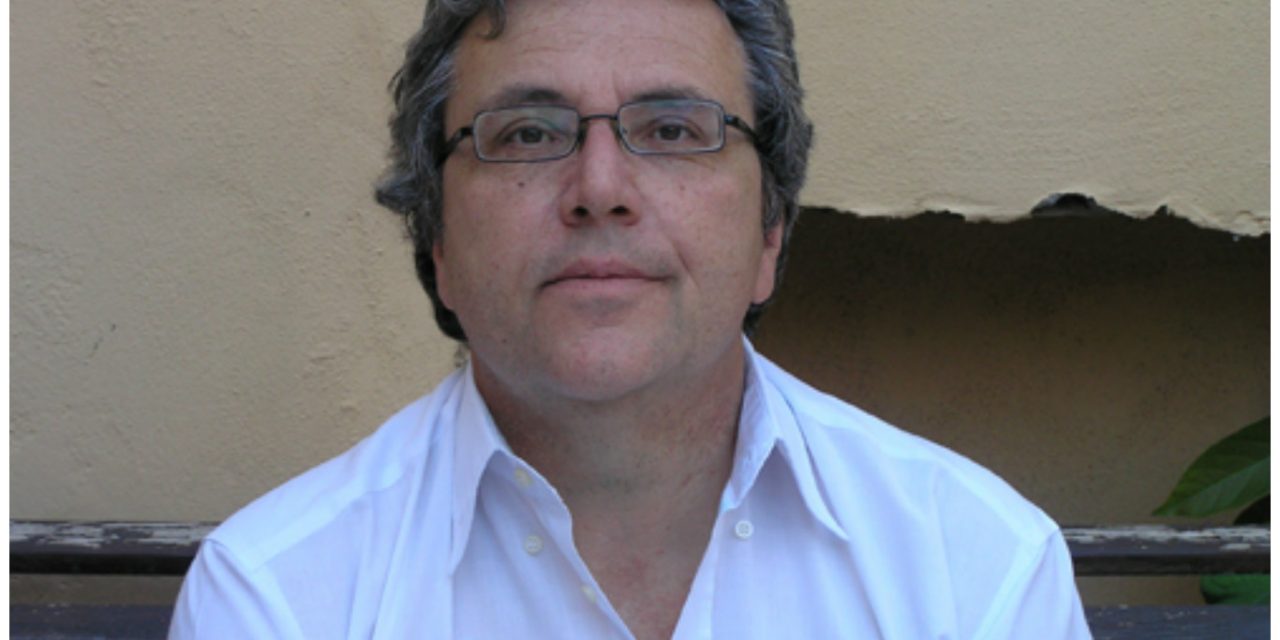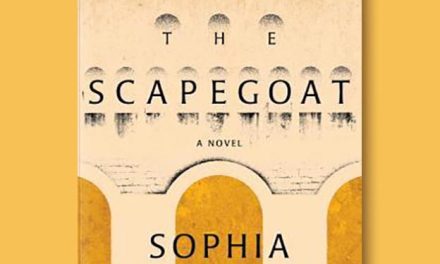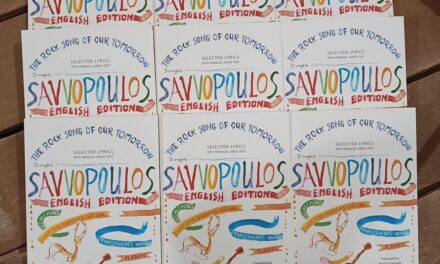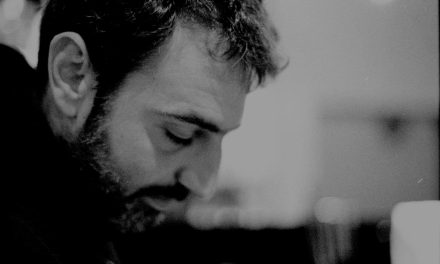Gregory Papadoyiannis was born in Crete in 1961. He is the writer of a novel, Sniff, a short stories collection, The city beyond the river, and a comic album, To the Almighty, hereunto. In 1991, he was awarded the national prize for young playwrights at the competition of the Ministry of Culture for his play The situations. His publications in English include 52 eyelands, ‘a sentimental guide through the Greek islands’, while his short stories have been included in anthologies both in the UK and the USA. His novel Baby Jazz is under publication by Fomite Press (U.S.A., 2017).
He is co-founder, administrator and writer for the books & cinema section of the website www.eyelands.gr. He is the curator for the only Greece-based international short story competition titled Colours. In 2012, together with Giannis Petrakis and Kostas Malousaris, he founded Strange Days Books Publishing, a small publishing house based in Rethymno.
Gregory Papadoyiannis spoke to Reading Greece* his multifaceted career as a writer, playwright, short film director, editor and translator, and “writing as the thread that unites them all”. He comments on artistic and more specifically literary production in Greece amid the crisis, noting that there has been “a creative outburst of new theater companies… in a lesser way, in the art of film-making, which remains an expensive art, and of course in literature, where things are more complicated”.
He also explains how he decided to found Strange Days Books, seeing the crisis “as an opportunity and a challenge to do what he loves most” while he comments on the prospects of Greek literature both in Greece and abroad. “Despite all adversities Greek literature has a lot of potential especially if there is an elementary interest in book publishing by the state in the future, something which has not existed until now. We have the talent, we have the capability […] I believe that the Greek publishing production could even take advantage of the global interest in Greece that was inevitably caused during the past years and could spread some of our booksabroadmore easily. All it takes is to approach this world out there and try to learn some things from it”.
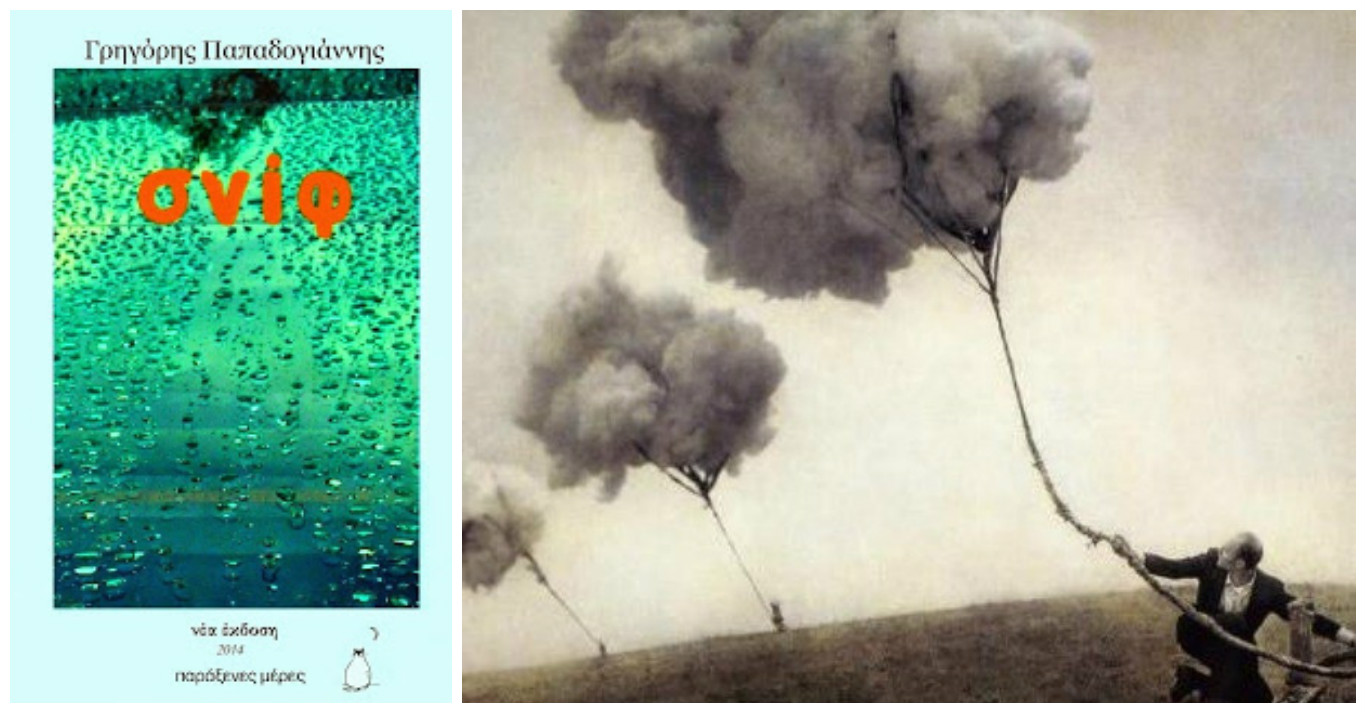
Your book Sniff recounts the history of Greece since the 1960s through the eyes of a child given in a comic yet deeply moving way, reconstructing ‘the innocence of a time that has been lost for good’. Tell us more.
Sniff in a few words, is the story of a child who does not want to grow up. So he remains 11 years old forever, while around him, seasons change, time keeps progressing, the trivial history of our daily actions and the official history of “grownups” continue their way. In order to talk about Sniff I would have to talk like the child who tells the story. Sniff is a toy train that takes us to our childhood. This period of time isn’t gone, it isn’t lost. We have left but we can always return to it. It is still the place where you feel fine because even nasty things can be funny and in spite of whatever happens around you when you’re there you know that you can be happy again as long as you just have a ball, or a board game or a «Blek» -magazine for kids.
You are the writer of 52 eyelands, a “sentimental guide through the Greek Islands”. How did you decide to write a travel guide? What is it that differentiates your book from other “travelling companions”?
This book differs from other travel guides because it is a travel guide based on emotions. Based on the feelings any trip to any island generates in me, and the emotions generated by each separate island because each one resembles a beloved friend of mine I meet again. I give information about the islands but I also narrate my personal adventures there, usually not very heroic ones, and I think this gives a somewhat more literary character to the guide. There is one more thing: I also write about the things that I found unpleasant in the islands, things that I don’t like seeing there, usually the results of a totally false idea of ‘development’ and attitudes that caused me distress. I believe that you do not see this often, but it is necessary to tell the truth, especially about the things you love, isn’t it?
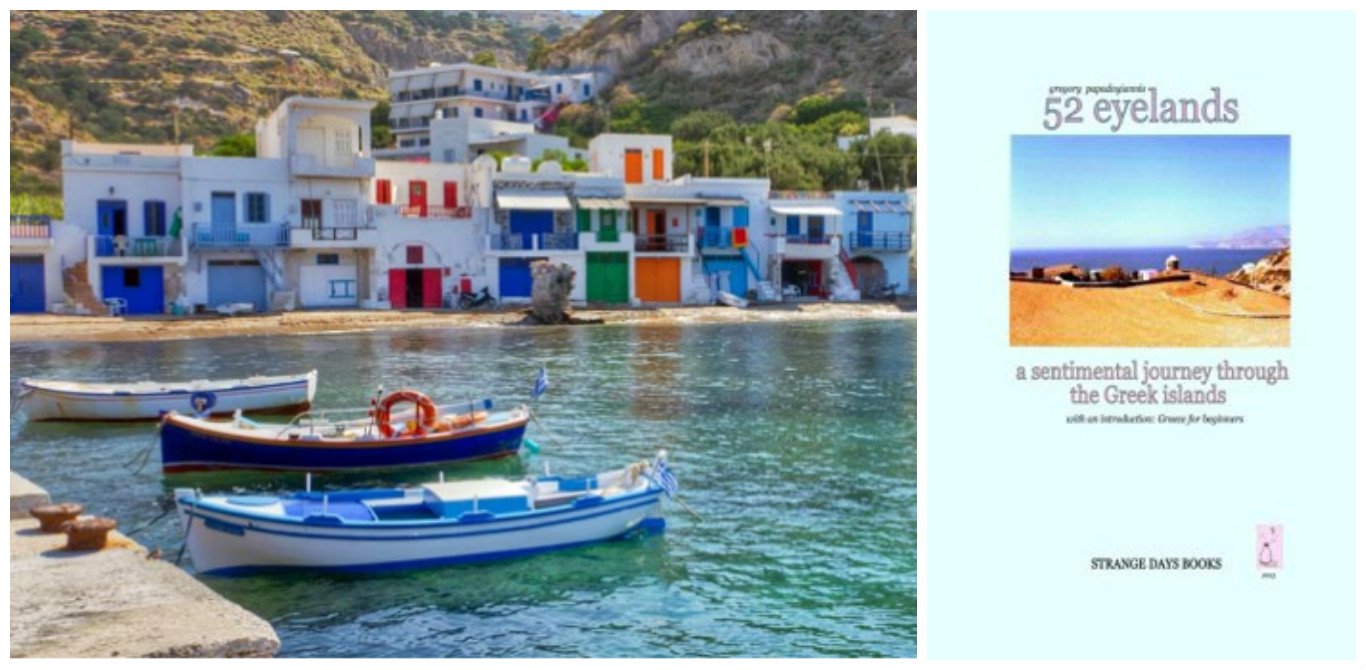
A playwright, a short film director, an editor and a translator. What is the binding thread?
The thread that unites them is, of course, writing. This was always what interested me the most; the way to express what you have inside your soul by telling a story. I was never particularly interested in the theory of art or literature, although inevitably I have learned things by studying in various schools. In very simplistic terms, there are two categories of people who write: those who make literature and those who tell stories. What I’m trying to be is a good storyteller, a man who tells stories. For this reason I sometimes find it more appropriate to put the characters on a theatrical stage, other times in a short story and lately I’ve been trying to create a comic book. Last time this happened I was still a student – Okay, I remained a student for a rather long time … so it hasn’t been that long since then. But everything I do is simply my way of telling stories to other children …
You are the curator for Colours*, the only Greece-based international short story competition. How do things stand as far as literary production in Greece is concerned?
For the past seven years, I’ve had the chance to read lots of stories written by young, mostly Greek authors. The situation has changed since the early years of the crisis, there are many people who have decided to turn to what they really love doing (even if this was only due to the misfortune of losing their job) and what many people love is art in all its different forms. We saw a creative outburst of new theater companies-with countless small groups producing great work in the past years, we can also see this, in a lesser way, in the art of film-making, which remains an expensive art, and of course in literature, where things are more complicated.
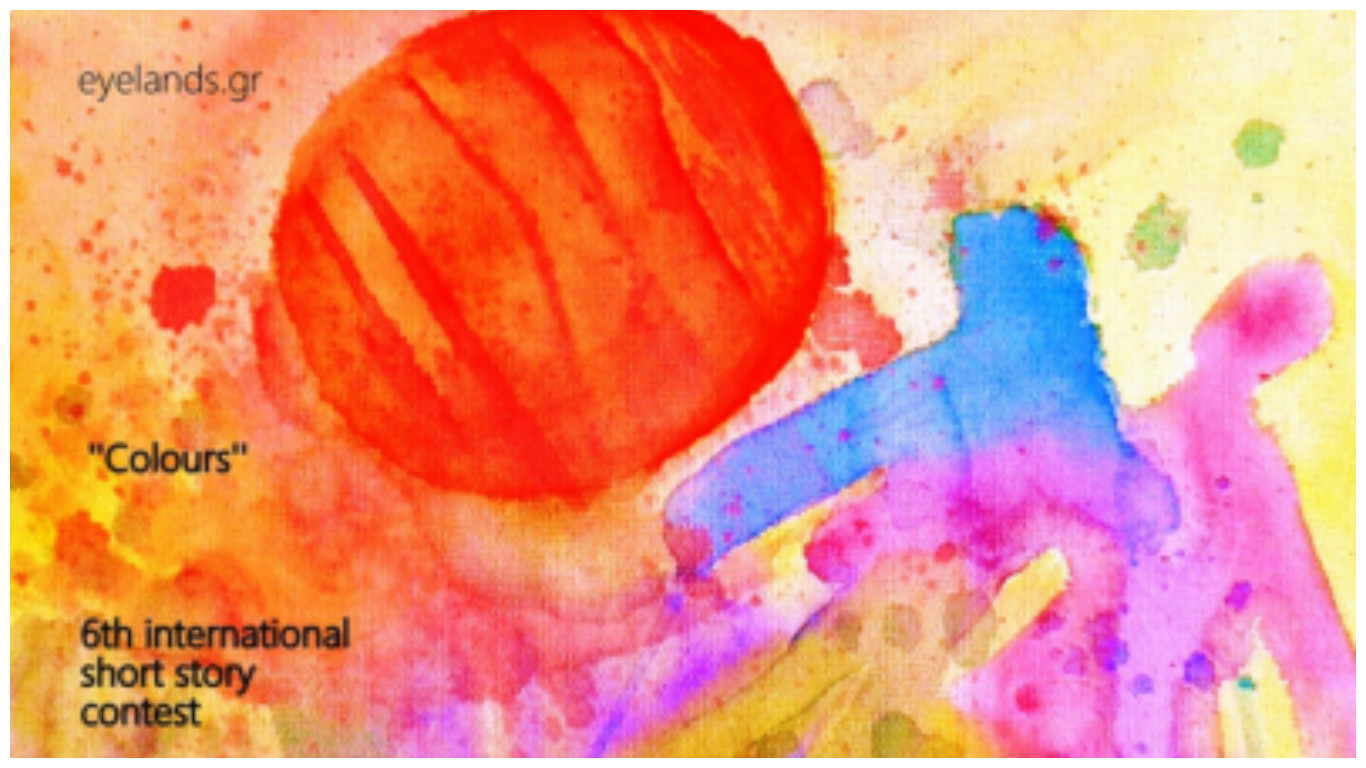
It is certain that more people have been choosing to express themselves through writing in recent years but the crisis has diminished the opportunities to publish their books, as publishers –the ones that are still in business- circulate fewer books and don’t risk publishing books by young writers. This led to another strange situation: a bunch of self-publishing “opportunities” have sprung. This creates a situation where anyone can be proclaimed a writer: one only needs to know how to write -sometimes not even this. Seeing young writers who have the vanity to see their name on a book without feeling the need to have someone -anyone- read their work first worries me. They just pay (there is a cost, of course) and see their book published. This does not mean that they’ve become writers. But who dares to tell them the truth?
On the other hand, over these years in eyelands.gr and Strange Days Books, we’ve had the opportunity to read exceptional works, original texts by authors with great talent, who often struggle with the economic conditions, with a usually hostile surrounding, but also with their personal anxiety about whether their writing isworthwhile (usually they are very modest people). You cannot help but admire these people and hope that they will find their way. Very often, authors who have participated in one of our contests send emails to thank us for giving them a chance. My response is always the same: we simply do what should be taken for granted; we are just here for you. It is you and your talent that gives the opportunity to yourself; this is what opens the wayfor yourself, not us.
* Our contest theme changes annually. In 2017 the theme will be “strange love stories”

In 2012, together with Giannis Petrakis and Kostas Malousaris, you founded Strange Days, a small publishing house based in Rethymno. How did you decide to embark on such a venture especially amid the economic crisis?
I think I already answered this … through my blabbering perhaps, in the previous question. At this point let me add that Strange Days is a social cooperative publishing company that was actually founded in the first year of the crisis, (actually it was eyelands.gr we created first) and perhaps the core of the group consists of the three of us, mentioned above, but we have another five or six people who help us as much as they can and dozens who support us in several ways. So we were also one of those people who saw the crisis as an opportunity and a challenge to do what they love most. We are just a small group among the vast number of people who are trying to find a way through the difficulties of the economic crisis.
At the moment, we can say that not only have we survived but our finances are improving every year and, most importantly, we are still a team of people who love what they do. Actually, the three of us are only the core of a team that is still growing. And yet in three or four years we have managed to publish several fine books (about 50 titles), to organize Sand Festival and a Writing Workshop, a theater production and more. To be honest, sometimes this seems unbelievable to me… I think the most important thing in this kind of team-work is to learn how to disagree with your team-mates. And how to survive with them after this. This is the key, perhaps not only for publishers.
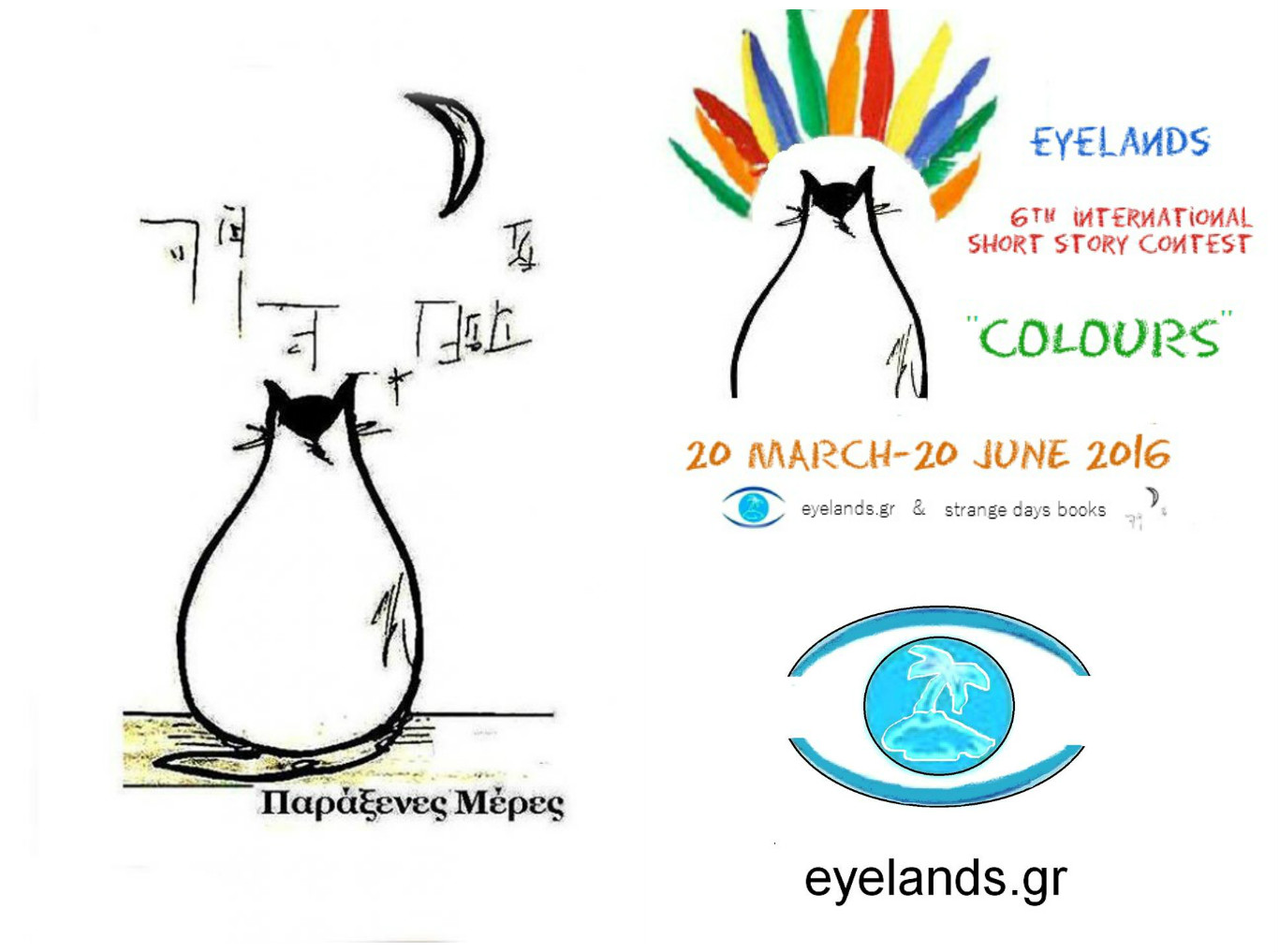
What about the Greek book market? Which are the prospects of Greek literature both in Greece and abroad?
I find it hard to talk about such a complicated issue, even though I already have more than 35 years of work experience, in one way or another, in the publishing business. But I believe that despite all adversities Greek literature has a lot of potential especially if there is an elementary interest in book publishing by the state in the future, something which has not existed until now. We have the talent, we have the capability, we are now in close contact with what happens in the rest of the world, we even have – at least as writers- the bitter experience of a country in crisis which is something that we can make use of. We, in Strange Days Books, have already published books by young English and U.S.A. writers and we hope that soon we’ll see some of our Greek writers’ books published by publishers in England or the U.S.
I believe that the Greek publishing production could even take advantage of the global interest in Greece that was inevitably caused during the past years and could spread some of our booksabroadmore easily. All it takes is to approach this world out there and try to learn some things from it. This applies to writers and publishers and everyone. As writers we must learn how to write following some rules as it is the case in all countries with a strong literary tradition. Besides this, everyone involved with the publishing business must learn to work hard in order to achieve results; we must learn to invest in hard work instead of trying to find “shortcuts” through the use of gimmicks.

Our feet, our roots are here and this is of special importance, and it is nice to see the bright side of it but our gaze should be directed towards the world and not towards our own navel. One of the first things we stated when we founded Strange Days Books was that we are based in a small city of Greece, and this is a fine thing, but we belong to the world and we just want to express something that belongs to our time through our books.
*Interview by Athina Rossoglou
TAGS: LITERATURE & BOOKS | READING GREECE

